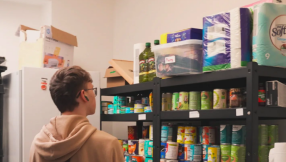
The Scottish Government has ruled out a review into controversial guidance for schools on transgenderism despite complaints from women's groups.
The guidance, 'Supporting Transgender Young People', has been met with controversy over a number of recommendations, including that schools need not inform parents if their children express a desire to change gender.
Questions have also been raised over sections of the guidance that say transgender children should be allowed to use the school facilities of their chosen gender, compete in the gender they identify as, and be allowed to share overnight accommodation with their preferred gender.
Campaign group Women and Girls in Scotland responded to the guidance with a lengthy report expressing serious concerns over the safety and comfort of girls who have to share their spaces with students who identify as female while still being male-bodied.
The group said that measures designed to make transgender students feel comfortable 'may have a negative impact on other groups of children and young people who are not transgender'.
It was concerned that allowing male-bodied young people to use intimate female spaces like bathrooms and changing facilities could compromise girls' rights to 'privacy and dignity'.
Scotland's Children's Commissioner Máire McCormack has also expressed reservations. In a letter to Scottish equalities minister Christina McKelvie earlier this month, she said she had received 'a number of complaints' about the guidance, which was drawn up by LGBT Youth Scotland in partnership with the Scottish Trans Alliance.
Ms McCormack told the Herald Scotland last month that she recognised the concerns and that 'it is clear further work needs to be done'.
She recommended that a Child's Rights Impact Assessment (CRIA) be undertaken on the guidance prior to it being used in schools.
In her letter to the equalities minister, she said the guidance may conflict with the Equality Act and Scotland's international human rights obligations.
'The Scottish Government has committed to human-rights based approaches to the delivery of children's services and fulfilment of its duty to ensure that guidance is available for those working with all children and young people to help to support their wellbeing needs and best interests,' she said.
'As part of this, the commissioner welcomes the preparation of a CRIA for all practice guidance materials and resources which are intended for use in schools and educational establishments in Scotland. This ensures that all guidance follows international human rights standards and is compliant with existing domestic and international law.'
Last year, members of the Haddington branch of the SNP also challenged the guidance, saying that it was being adopted 'apparently without any consultation, evaluation or risk assessment', adding that it was indicative of 'transgender ideology' sweeping across Scottish schools.
Free Church minister David Robertson shared their concerns.
'The Haddington SNP branch is quite right and brave to challenge the government's wholesale adoption of the militant trans agenda,' he said.
'The advice in the guidance is harmful and totalitarian, and the adoption of the radical transgender agenda is an attack on women. It's about time that others spoke up.'
According to STV, the Scottish Government has confirmed that it will not be carrying out any review of the guidance.
'Scotland is on its way to becoming the first country in the world to have lesbian, gay, bisexual and transgender (LGBT) inclusive education embedded in the curriculum,' a Scottish Government spokesperson said.
'Our education system must support everyone to reach their full potential and it is vital that the curriculum is as diverse as the young people who learn in our schools.
'As this is not a Scottish Government publication, it would be inappropriate for the Scottish Government to undertake any review. The guidance is one of a range of tools available to schools and education authorities in their support for transgender pupils.'













